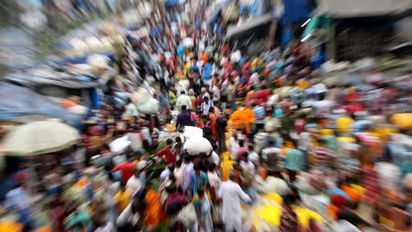Delhi world's 2nd most populated city, soon to be 1st; Mumbai and Kolkata among fastest growing

Synopsis
India, already the world's most populous nation, is expected to maintain this status until the end of the century, as indicated by the UN Population Prospects report. By 2062, India's population is projected to peak at 1.701 billion.
Delhi has emerged as the second most populous city in the world, housing approximately 33.8 million residents, according to the latest United Nations World Urbanisation Prospects report. This places Delhi just behind Tokyo, the current global leader with 37 million inhabitants.
Both Delhi and Mumbai have secured spots among the top ten most populous cities globally, with Mumbai accommodating 21.6 million people, ranking ninth. Projections from the UN suggest that by 2028, Delhi could surpass Tokyo to claim the title of the world's most populous city.
Tragic landslide in Nepal: 6 Indians missing after bus plunges into river
India, already the world's most populous nation, is expected to maintain this status until the end of the century, as indicated by the UN Population Prospects report. By 2062, India's population is projected to peak at 1.701 billion.
The report also forecasts a significant rise in urbanization trends globally. By 2030, there are expected to be 43 megacities worldwide, defined as cities with populations exceeding 10 million. The majority of these megacities are anticipated to be in developing nations. By 2050, it's predicted that two out of every three people will reside in urban centers, highlighting a major demographic shift.
The UN Department for Economic and Social Welfare has highlighted the challenges posed by rapid urbanisation, including the need for adequate housing, transportation, energy infrastructure, and essential services such as education and healthcare.
Outrage erupts as Tamil YouTuber TTF Vasan mocks devotees at Tirupati Temple (WATCH)
Stay updated with the Breaking News Today and Latest News from across India and around the world. Get real-time updates, in-depth analysis, and comprehensive coverage of India News, World News, Indian Defence News, Kerala News, and Karnataka News. From politics to current affairs, follow every major story as it unfolds. Get real-time updates from IMD on major cities weather forecasts, including Rain alerts, Cyclone warnings, and temperature trends. Download the Asianet News Official App from the Android Play Store and iPhone App Store for accurate and timely news updates anytime, anywhere.